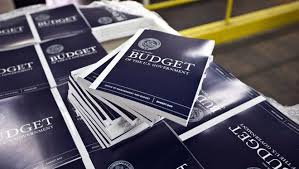WALLACE: I want to pick up on exactly your point because the president made it clear he's willing to negotiate. He's willing to compromise. Here he is this week.
JOSEPH R. BIDEN, PRESIDENT OF THE UNITED STATES: I'm going to bring Republicans into the Oval Office, listen to them, what they have to say, and be open to their ideas.
WALLACE: Is the president willing -- you say he's willing to compromise, is he willing to come down? And if he so, how far from the $2.25 trillion spending bill that he's talking about here from the price tag? And in terms of paying for it, is he willing instead of corporate taxes to do what usually is done with infrastructure, which is to base it on user fees, whether it's increasing the gas tax or a new mileage tax?

DEESE: The president has put forward his plan. Some people have said it's too much, some people have said it's too little. We think it's just right, about $2 trillion over eight years, investing in core drivers of growth like our roads and bridges, like high-speed Internet, like research and development.And what he said and as you say, we want to have this conversation. We're starting the outreach already. I've talked to dozens of (But I'm trying to get a sense, Brian,) members of Congress over the course of this week --
WALLACE: how far is he willing --how far is he willing to go down? I mean, when he talked about COVID relief it was $1.9 trillion, that's where he began, that's where he ended. Is he really willing to come down substantially below $2.25 trillion? Is he willing to consider other pay-fors like -- instead of corporate taxes?
DEESE: I'm not going to negotiate that on this show. I would say he -- this is a good-faith effort, we want to hear what other people are, we want to get people's reactions to this package both in the specifics and in the overall.On the tax side, the president has laid out what he believes to be a very common sense and reasonable way to do this. Our corporate tax system is broken. It remains broken. The 2017 tax law made things works. There's a lot of sensible reform we could do, though, that would also generate revenue across time.If people have different approaches to that, he's open to doing it. The one thing that he's been very clear about is he does not believe that we should raise taxes on people making less than $400,000 a year and he doesn't believe we should fund investments on the backs of working people in the bottom half of the income distribution, many of whom have been hit terribly hard (Right.) through this COVID crisis.So, those are his (Let me) those are his principles, and he wants to hear what other people's ideas are.
译文由可可原创,仅供学习交流使用,未经许可请勿转载。












